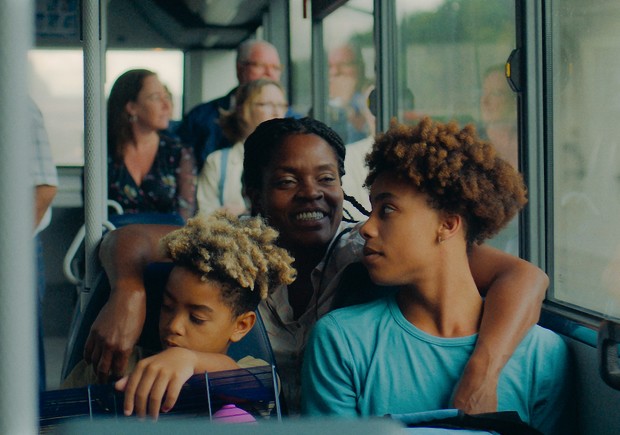previously published on Cineuropa
Family dynamics are always tricky to negotiate, so it should come as no surprise that the relations between family members are often at the centre of the literary and cinematic works. This is certainly the case with Donkey Days, the sophomore feature written and directed by Rosanne Pel, so far best known for her Toronto-premiered debut, Light as Feathers (2018), in which she examined how an abusive relationship between a teenager and his mother can spill over to the outside world. Donkey Days has premiered in the main competition of Locarno.
This time, we have two adult sisters, Anna (Jil Krammer, in her first screen role) and Charlotte (German actress Susanne Wolff, recently glimpsed in Köln ’75), who have always fought for their mother’s attention. The mum, Ines (veteran actress Hildegard Schmahl), is quite a piece of work herself. At first, one might think that she is trying to balance out the dynamics between her daughters, but she actually fuels their rivalry. The question is whether she does so willingly, for the sake of manipulation, or unwittingly, simply by making questionable choices.
The sisters have adopted different coping mechanisms to deal with the mother. While schoolteacher Anna reacts impulsively, through sulking and childish tantrums, Charlotte tries to present herself as a highly organised person. Their tactics, however, take different tolls on their lives, since Anna manages to sabotage the relationship with her partner Noe (Amke Wegner), and Charlotte always comes across as cold and distant. Ines’s advancing age and her secrets, which Anna and Charlotte come to discover, such as a “mystery urn” and her love of donkeys, present new challenges for them and their already troubled relationship.
The structure of the movie, in which the first two-thirds of the running time can be seen as a prolonged exposition, does not make watching Donkey Days a very pleasant experience. However, it places the viewers directly into the minds of the sisters, particularly Anna, and makes them feel the emotional turmoil the two have to grapple with when dealing with their mother. Viewers may also get a bit lost and confused owing to the fact that, at least during the exposition part, the plot might (or might not) be presented chronologically, while the filmmaker also introduces a kind of “alternative reality” where the sisters meet their mother as a young person of about their age. The sense of unnerving disorientation is further underlined by the use of unsteady, handheld camerawork with numerous horizontal pans by cinematographer Aafke Beernink as well as by Xander Nijsten’s seemingly rough editing, while the atonal music score by Ella van der Woude also plays a part.
The actresses and their work are among the chief saving graces of the movie. Hildegard Schmahl has a strong, commanding screen presence, while the chemistry between Susanne Wolff and Jil Krammer is palpable. The latter is also paired well with another non-professional, Amke Wegner, and thanks to Rosanne Pel’s work with them, their lack of formal experience never shows. As a bonus, Carla Juri shines in a few flashbacks as the young Ines.
In the end, Donkey Days is less about the story and making some kind of point than it is about the vibe. This kind of approach could be classed as risky, but it is obvious that this time, it is a deliberate choice, and it consequently bears a strong auteur-driven hallmark.



